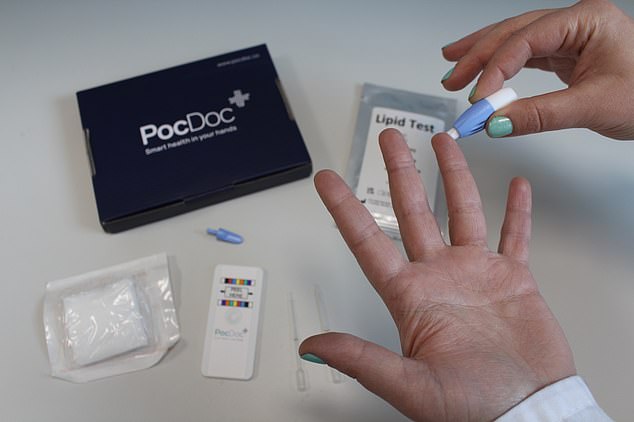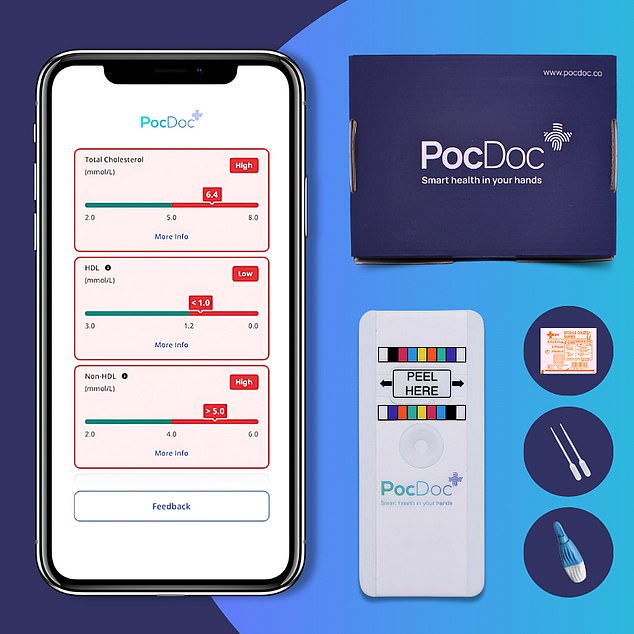A £20 home heart check that could save GPs hours of time per week and prevent up to 136,000 deaths per year has been launched today.
Cardiovascular disease (CVD) – the general term used for conditions that affect the heart or blood vessels – is the leading cause of death in the UK, claiming 170,000 lives annually.
However it is thought that up to 80 per cent of these cases, such as heart attacks and strokes, could be avoided through earlier screening and detection.
A new at-home ‘Healthy Heart Check’ has been launched online and in 700 Well pharmacies across the UK to help people screen for potential issues and alert their doctor if it flags a problem.
The finger-prick test provides users with a full cholesterol profile, BMI score, heart age and a 10-year risk assessment for heart attacks and strokes.
Patients take a small blood sample, drop it onto the ‘PocDoc’ test and after seven minutes, take a photo of the reading with their smartphone or tablet.
Results are processed in 10 minutes and appear instantly, while any issues can be shared directly with a GP via the NHS app.
Previous research has indicated that every digital health check could save 20 minutes of a family doctor’s time, potentially adding up to hours over the course of a week.




For patients, the test also dramatically reduces the time it typically takes to arrange, undertake and receive results from a standard blood test.
Steve Roest, CEO and co-founder of PocDoc, said: ‘CVD is the UK’s biggest killer, but prevention is the key to beating it.’Our patented technology helps people detect issues earlier, faster, and with less hassle.
‘Pharmacies like Well are vital to making health testing more accessible. They’re at the heart of communities, and this partnership ensures more people – especially those at greatest risk – can take charge of their heart health.’
Andrew Caplan, chief retail officer at Well Pharmacy, described the test as a ‘game-changer, empowering people to take proactive steps to prevent serious conditions like cardiovascular disease.’
According to the NHS the exact cause of CVD isn’t clear, but having high blood pressure, high cholesterol, diabetes or being overweight can all increase the risk of developing it.
A healthy lifestyle can lower the risk of CVD and, for people who already have it, staying as healthy as possible – for example eating a balanced diet, exercising regularly, cutting down on alcohol and maintaining a healthy weight – can stop it from getting worse.
